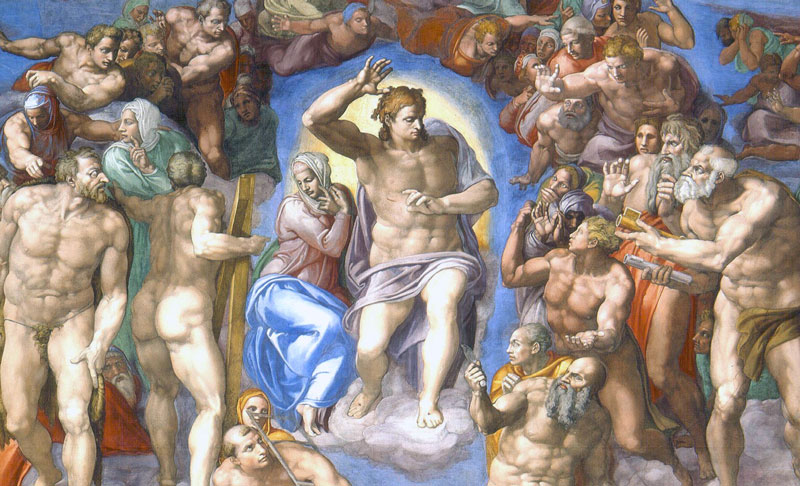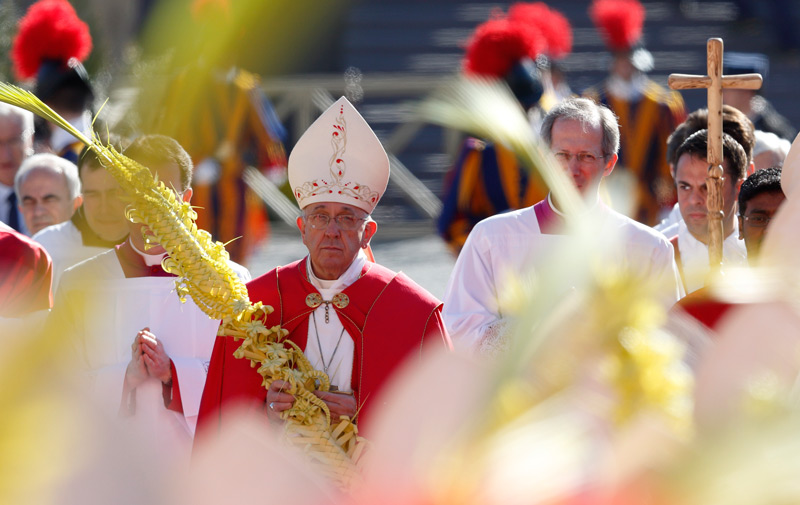
It isn’t over when it’s over. That’s one way to express what Christians profess about this life.
That doesn’t mean we go about thinking how wonderful it will be to die, but it does mean that we face the prospect of death with a conviction that there is more to come. Consequently, we grieve the deaths of loved ones but we expect an eventual family reunion. We contemplate our own death as a journey toward union with God. We imagine the heaven to which the Lord ascended us.
Jesus speaks of many mansions awaiting those who follow faithfully. We are all familiar with the parable of the sheep and the goats, in which those good to the least of the brothers and sisters go smoothly to the home of the Father. St. Paul tells us that eye has not seen what God has prepared for those who love him. It will ultimately be a glorified, ageless body. The Book of Revelation paints a picture of a heavenly Jerusalem, bejeweled and full of light. Along with the vision of God, we are promised that crying out and pain will cease, and all will be made new. Adoration and joy go on and on.
Yet there is an alternative. Darkness awaits the loveless. Pain and loss cause wailing and teeth-grinding. Jesus has said so. Revelation speaks of a pool of fire. Recently a regrettable number of people have swallowed an erroneous media report that Pope Francis has denied the existence of hell. The story was foisted on readers by Eugenio Scalfari, an atheist who has previously misquoted and misrepresented the Holy Father. His trademark apparently is that he never records conversations and does not take notes. Meanwhile, anyone who checks into Pope Francis’ exhortation “Gaudete et Exsultate” (March 19, 2018) will find him quoting St. John of the Cross about overcoming evil with good and banishing the devil. In Chapter 5, “Spiritual Combat, Vigilance, and Discernment,” he emphasizes our call to be wary of satanic wiles and snares. He refers to fallen angels by biblical names. It is quite obvious that the pope understands that their home base is hell.
For those of us who hope for an everlasting happy ending, a story told by Cardinal Joseph Bernardin may give us confidence about what heaven will be like. When the cardinal first set eyes on Tonadico di Primiero, the village in northern Italy from which his parents hailed, he was struck by its familiarity. He had seen photos and heard stories. He knew what the Dolomite Mountains looked like. But something else overtook him. He declared, “My God, I know this place. I am home.”
Perhaps for us, one of the surprises upon arrival in heaven will be how at home we feel. We have not seen pictures, but we have celebrated the Eucharist. Through Scripture, tradition, and the lives of saints, we have heard the family stories. And if we have truly loved, we will know light instead of scorching fire.
Sister Pamela Smith, SSCM, is the Secretary for Education and Faith Formation at the Diocese of Charleston. Email her at psmith@charlestondiocese.org.




